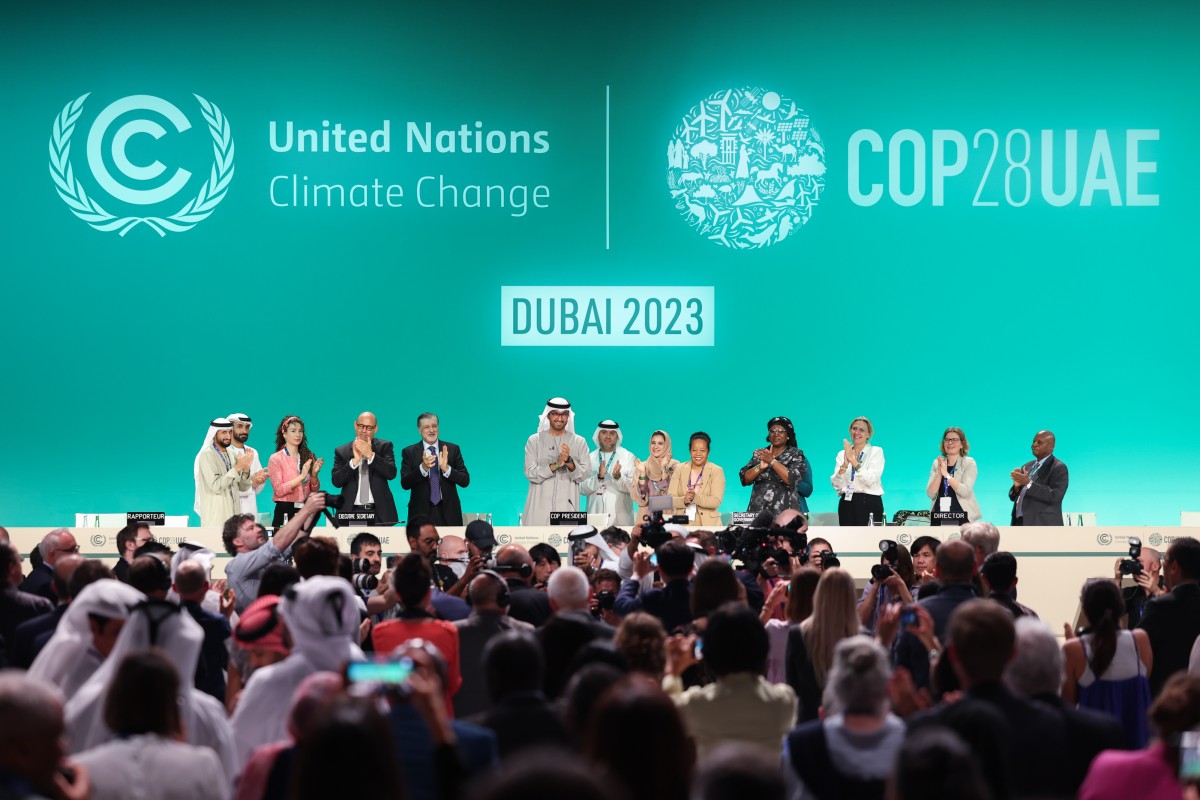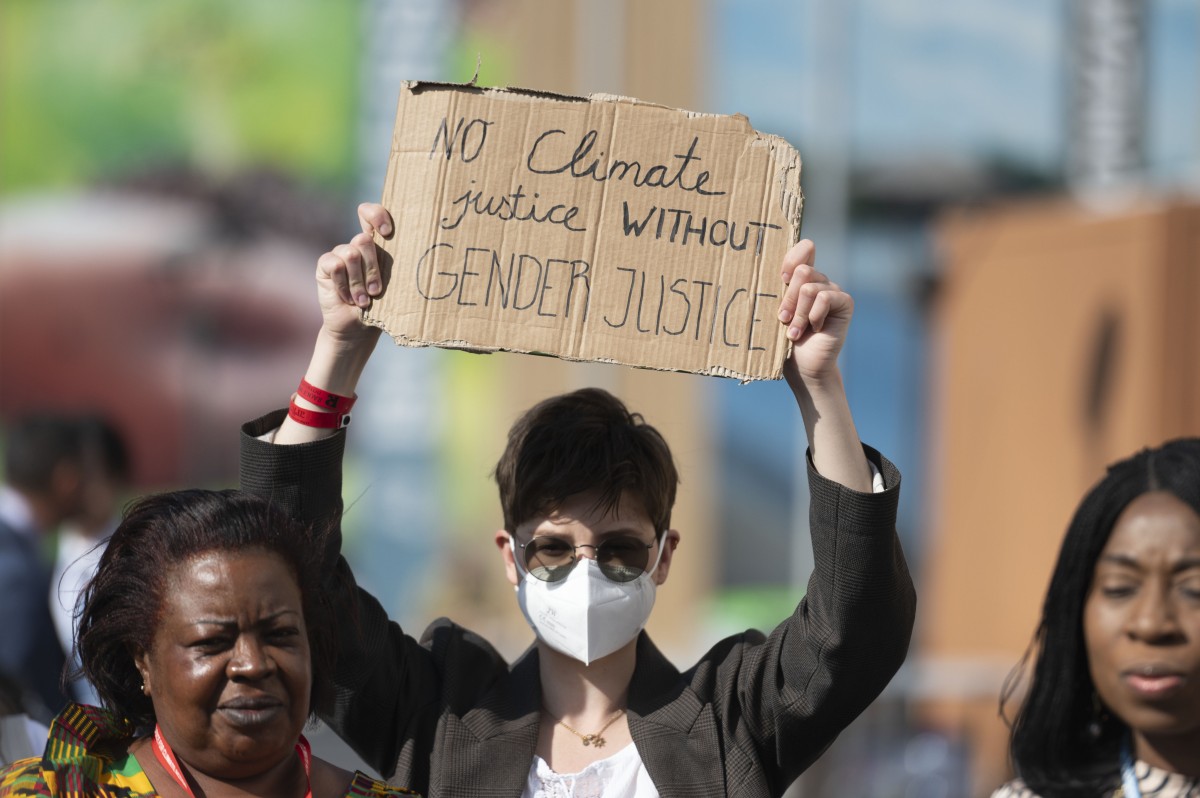Everything about COP29 in Baku, Azerbaijan: What is it and what happened??
From 11 to 22 November 2024, COP29 took place in Baku, Azerbaijan. The annual United Nations climate summit, officially known as the Conference of the Parties (COP), is a crucial moment where world leaders, policymakers, civil society organisations, research institutions, and businesses come together to negotiate measures to address the climate crisis. What did we expect from COP29 and what happened?
What is COP29?
COP29 stands for the 29th Conference of the Parties under the United Nations climate organisation (UNFCCC). During this summit, governments must take new steps to mitigate the climate crisis and achieve the goal of limiting global warming to a maximum of 1.5 degrees Celsius. The conference is essential for making global agreements and securing climate finance.
COP29 in Baku focussed on setting a new climate finance goal and implementing adaptation plans for countries most affected by climate change. Decisions at COP are made by consensus and apply to all UN member states.
In the COP blue zone, formal negotiations take place, where the most important decisions and negotiations on climate change are discussed. This zone is only accessible to delegates from member states, observers, UN organisations, and accredited NGOs, including organisations like Simavi. In the COP green zone, organisations gather to share and network around sustainability initiatives.
What is the UNFCCC?
The UNFCCC (United Nations Framework Convention on Climate Change) is an international treaty that began in 1992 at the Earth Summit in Rio de Janeiro, Brazil. The goal of the UNFCCC is to combat global warming and reduce worldwide greenhouse gas emissions. The treaty forms the basis for international climate conferences, such as the annual COPs.
COP is the abbreviation for the Conference of the Parties, i.e., the conference of the parties that have signed the UNFCCC treaty. Since 1995, countries have met annually to work on climate policy. The Paris Agreement of 2015, which aimed to limit global warming to a maximum of 1.5 degrees Celsius, is a key outcome of previous COPs. The Paris Agreement is based on three pillars: mitigation (reducing emissions), adaptation (adjusting to climate change), and financing (support from wealthy countries for poorer nations).

Where did COP29 take place?
COP29 was be held in Baku, the capital of Azerbaijan. Azerbaijan is the largest and most populous country in the Caucasus, located between Iran to the south and Russia to the north. It is a remarkable location for a climate summit, as Azerbaijan's economy is almost entirely based on oil and gas. The same was true for COP28, which was held in Dubai and chaired by Sultan al-Jaber, head of the Abu Dhabi National Oil Company.
The main reason Azerbaijan was chosen is that Russia blocked any alternative host country from Central and Eastern Europe — the region that was due to host. The COP Presidency rotates among the five recognised UN regions: Africa, Asia, Latin America and the Caribbean, Central and Eastern Europe, and Western Europe plus countries like Canada, the US, New Zealand, and Australia. In 2025, COP30 will be held in Belém, Brazil. This is expected to be a crucial summit.
Who represented the Netherlands in negotiations during COP29?
During COP, the European Union (EU) negotiates as a single entity, based on a common position established in the Environment Council, which is composed of all EU environmental ministers. For the Netherlands, this is Sophie Hermans, Minister of Climate Policy and Green Growth. European Commissioner for Climate Action, Wopke Hoekstra, will represent the European Commission.
What was on the agenda of COP29?
Several important decisions had to be made at COP29. One of the top priorities was setting a new long-term goal for international climate finance, the New Collective Quantified Goal (NCQG). The previous goal was to mobilise $100 billion annually for climate action in developing countries from 2020 onwards, a figure that has proven far from sufficient.
The new national climate goals, the Nationally Determined Contributions (NDCs), were also discussed. By 2025, all countries must submit these targets for 2035. The EU will submit a single joint NDC. The same applies to the National Adaptation Plans, which must be completed by the first quarter of 2025.
A major point of tension turned out to be that wealthy nations are demanding more ambitious mitigation plans from the rest of the world, particularly from countries with relatively high emissions. Meanwhile, developing countries want progress on funding for climate finance, especially with a view to financing the adaptation plans.
What was the outcome of COP28?
COP28 took place in 2023 in Dubai, UAE, and focused on the first Global Stocktake. While progress was made on financing adaptation and the commitment to phase out fossil fuels, the overall impact was limited.
For many vulnerable communities, the lack of binding agreements on climate adaptation and financing was disappointing. The approval of the Loss and Damage Fund was a step forward, but the pledges remain insufficient. The fund is specifically designed for countries that have long felt the impacts of the climate crisis and are now facing unavoidable consequences, such as severe droughts and floods. One of the biggest impacts is that access to safe and clean drinking water is becoming increasingly scarce.
For more information, read Simavi’s COP28 live blog.

Why did NGOs like Simavi attend COP29?
NGOs, including Simavi, played a vital role during COP29 by drawing attention to the most vulnerable groups, such as women and girls and local communities in the Global South. Historically, these groups and communities have contributed the least to climate change but are the hardest hit by its effects.
Women and girls are especially affected due to their responsibilities for water collection and their specific needs related to pregnancy and menstruation. Moreover, they have fewer resources to protect or adapt themselves.
Simavi advocates for climate justice, ensuring that climate adaptation financing focuses on supporting these groups with public funds, without making them dependent on loans. The goal is a fair finance target, requiring at least $1 trillion annually to support developing countries in their transition to sustainable energy and climate adaptation. The emphasis is on grants over loans to prevent countries from falling further into debt.
To free up funds, the EU and its member states could start by imposing taxes on fossil fuels, aviation, maritime taxes, financial transaction taxes, and wealth taxes, with part of the revenue earmarked for new and additional climate finance. Furthermore, gradually phasing out fossil fuel subsidies could free up financing for sustainable development, including climate finance.
By advocating for these measures year-round, organisations like Simavi hope that climate justice and gender equality remain central to the negotiations and that the Dutch government takes responsibility in international climate action.
Dutch NGOs collaborate in the International Climate Coalition, which includes organisations like Simavi, CARE Nederland, Mercy Corps, Action Aid, and Oxfam Novib. Through a joint position paper, they called on the Dutch government to prioritise climate justice in its policies and actions at COP29.
What happened during COP29?
Unfortunately, the outcome of COP29 was hugely disappointing. The parties agreed to a mere $300 billion per year in climate financing by 2035. Taking inflation into account, an amount of $300 billion is no improvement on the amount agreed in 2015, while the climate problems have become much more serious in the meantime. Moreover, a large part of it consists of loans, while many developing countries are already drowning in debt.
The future of billions of people is at stake, If climate-vulnerable countries are not enabled to adapt to climate change, to repair damage, and to take the step towards a sustainable future, the effects will be incalculable. After the failure of Baku, the hope is pinned on COP30.
When is COP30?
COP30 will be held in Belém, Brazil, from 10 to 21 November 2025. Brazil has a greener reputation than 2024 host Azerbaijan and is determined to make this a historic climate summit. During this COP, countries will also have to submit their NDCs for 2035. The COP is therefore expected to focus on the economic transition needed for climate mitigation. Preparations start now. And it is crucial to avoid a second Baku.


